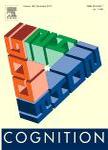版权所有:内蒙古大学图书馆 技术提供:维普资讯• 智图
内蒙古自治区呼和浩特市赛罕区大学西街235号 邮编: 010021

作者机构:Univ British Columbia Dept Philosophy Vancouver BC Canada Univ British Columbia Dept Psychol Vancouver BC Canada Univ British Columbia Ctr Brain Hlth Vancouver BC Canada Indiana Univ Bloomington Dept Cognit Sci 819 Eigenmann1900 E 10th St Bloomingmn IN 47406 USA Carnegie Mellon Univ Dept Philosophy Pittsburgh PA 15213 USA
出 版 物:《COGNITION》 (Cognition)
年 卷 期:2020年第203卷
页 面:104370-104370页
核心收录:
学科分类:0402[教育学-心理学(可授教育学、理学学位)] 04[教育学]
基 金:SSNAP
主 题:Predictive processing Affective salience Attention Free energy Bayesian brain Emotion
摘 要:In this paper we argue that predictive processing (PP) theory cannot account for the phenomenon of affect-biased attention - prioritized attention to stimuli that are affectively salient because of their associations with reward or punishment. Specifically, the PP hypothesis that selective attention can be analyzed in terms of the optimization of precision expectations cannot accommodate affect-biased attention;affectively salient stimuli can capture our attention even when precision expectations are low. We review the prospects of three recent attempts to accommodate affect with tools internal to PP theory: Miller and Clark s (2018) embodied inference;Seth s (2013) interoceptive inference;and Joffily and Coricelli s (2013) rate of change of free energy. In each case we argue that the account does not resolve the challenge from affect-biased attention. For this reason, we conclude that prediction error minimization is not sufficient to explain all mental phenomena, contrary to the claim that the PP framework provides a unified theory of all mental phenomena or the brain s cognitive functioning. Nevertheless, we suggest that empirical investigation of the interaction between affective salience and precision expectations should prove helpful in understanding the limits of PP theory, and may provide new directions for the application of a Bayesian perspective to perception.